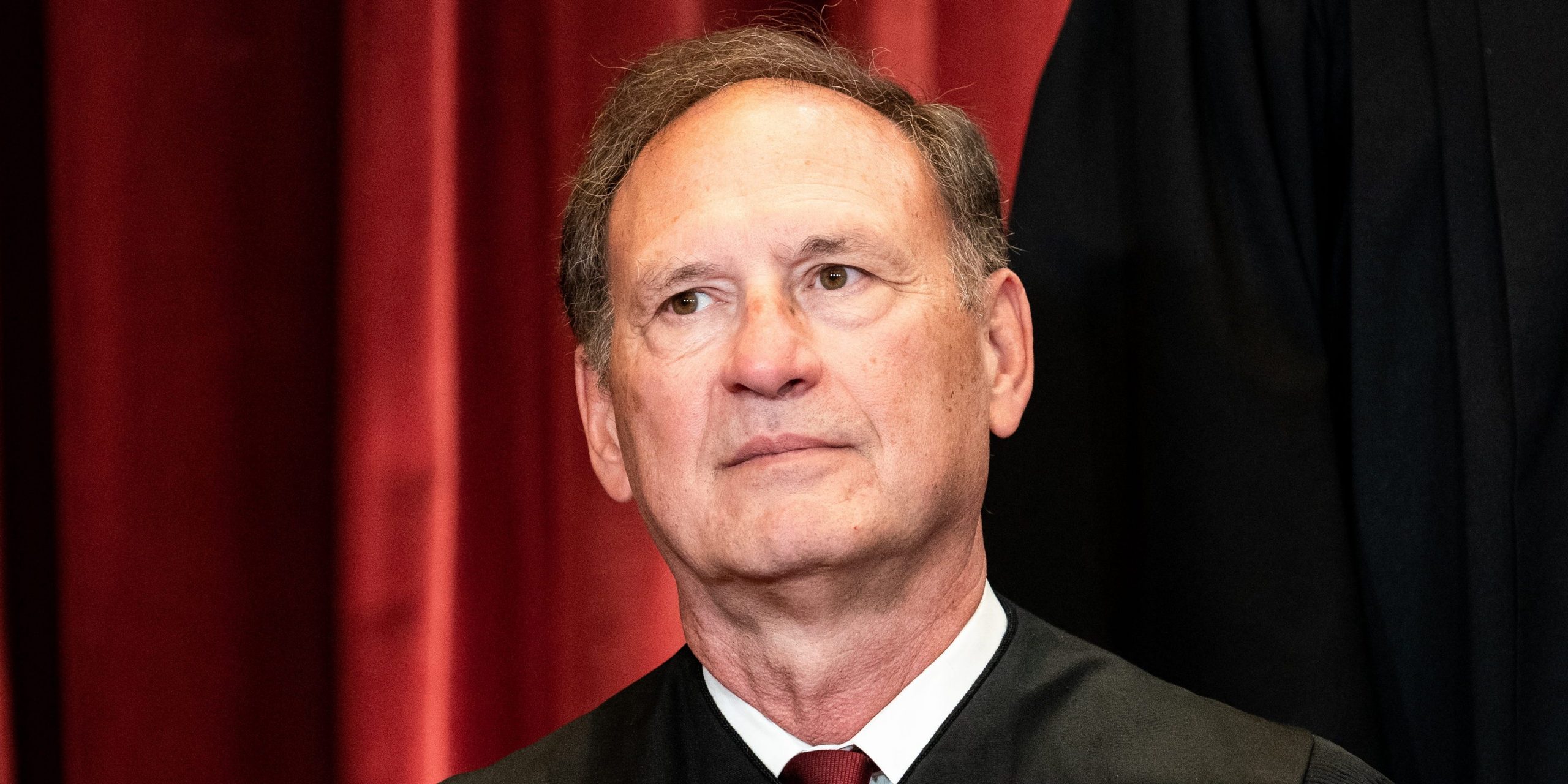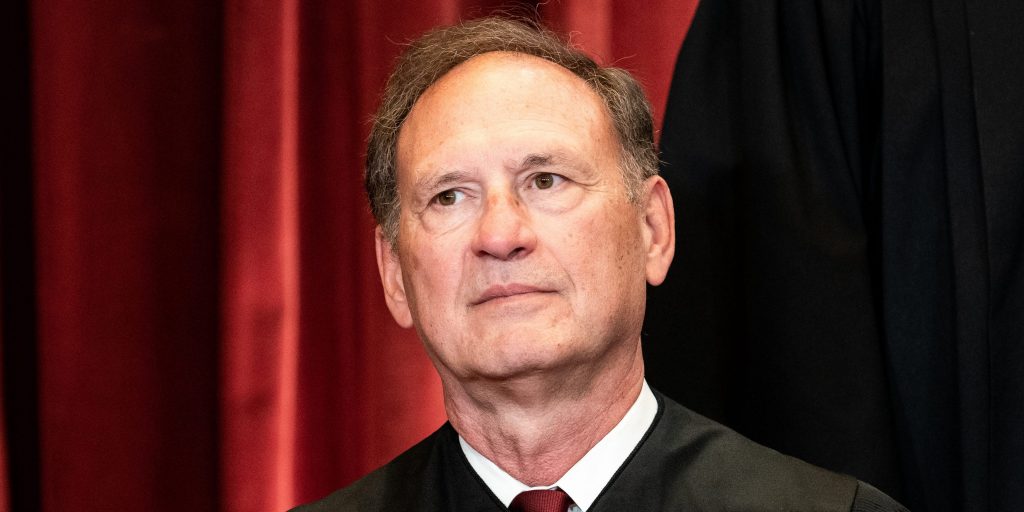
Erin Schaff-Pool/Getty Images
- Justice Samuel Alito defended the Supreme Court against recent criticisms.
- Alito said members of the media and politicians have tried to paint the court's work as "sneaky and dangerous."
- "This portrayal feeds unprecedented efforts to intimidate the court," he said.
- See more stories on Insider's business page.
Justice Samuel Alito on Thursday defended the Supreme Court against recent backlash over its decision earlier this month to maintain a Texas law that bans abortion after six weeks of pregnancy.
Alito was among the majority of justices who on September 2 refused an emergency request to block the Texas statute, which is widely considered to be one of the most restrictive abortion measures in the country. The narrow 5-4 decision was handed down on its emergency docket without a full briefing and oral arguments, a process that some experts have called the "shadow docket."
Alito criticized the "shadow docket" term and said members of the media and politicians who've used the phrase are painting Supreme Court procedure as "sneaky and dangerous" and "sinister."
"The truth is there was nothing new or shadowy about the procedures we followed," the associate justice told an audience at the University of Notre Dame.
He added that "this portrayal feeds unprecedented efforts to intimidate the court or damage it as an independent institution."
-Mark Joseph Stern (@mjs_DC) September 30, 2021
Alito's remarks come a day after the Senate Judiciary Committee held a hearing to examine the court's use of the "shadow docket" and the Texas abortion decision. Democrats attacked the court's conduct, whereas Republicans came to its defense.
Pro-abortion groups, Democratic leaders, and other critics have slammed the court's Texas decision, saying it violated the 1973 landmark ruling Roe v. Wade, which guaranteed the constitutional right to an abortion until about 24 weeks of pregnancy.
During his hour-long lecture on Thursday, Alito rejected such criticisms as "false and inflammatory."
"We did no such thing and we said that expressly in our order," he said.
In an unsigned opinion, the court's majority said the Texas decision was technical and not based on the substance of the law, which could still be legally challenged. The court in December will hear a major abortion case concerning a Mississippi law that bans the procedure after 15 weeks of pregnancy.
Alito's comments echo recent remarks made by his fellow justices Stephen Breyer, Amy Coney Barrett, and Clarence Thomas, who have all defended the court against negative perceptions. The court currently faces low public approval ratings, according to multiple polls.
In a question-and-answer portion at the end of his remarks, Alito pushed back on views that the court behaves like a "policy-making body," saying that justices have different "judicial philosophies" and don't make decisions based on "what we personally would favor."

